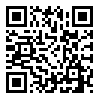BibTeX | RIS | EndNote | Medlars | ProCite | Reference Manager | RefWorks
Send citation to:
URL: http://ncmbjpiau.ir/article-1-328-en.html
Aime and Background. The aim of this study was to evaluate let-7 family members expression in activated naïve CD4+ T cells and IL-2 induced cells. Let-7 family has oncogenic and tuomor suppressive activity in different cells.
Methods. Naïve CD4+ T cells were activated by anti-CD2, CD3, CD28 microbeads. After 3 days, the activated cells stimulated by IL-2(0.75ng/ml). after 72h total RNA extracted the cells and c-DNA synthesis and Q-RT-PCR performed by miRCURY LNATM universal RT miRNA PCR kit. miRNA expression analyzed by geneX software and ∆∆Ct method.
Results. Five members of let-7 family over-expressed in activated cells compared with IL-2 induced cells. Targets Predicted by miRDB and miRanda software including families of DUSP, PTPN and SOCS that two first families inhibit TCR signaling and latest suppress JAK/STAT pathway.
Conclusion. It appears that let-7 family play important role in clonal expansion of activated CD4+ T cells by specific genes suppression in post-transcriptional levels for appropriated immune response.
| Rights and permissions | |
 |
This work is licensed under a Creative Commons Attribution-NonCommercial 4.0 International License. |





